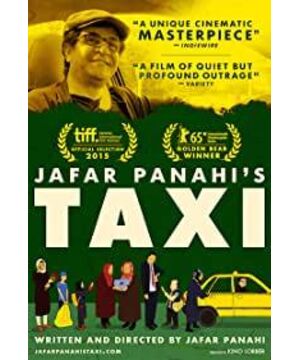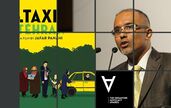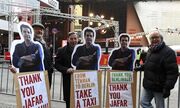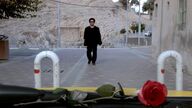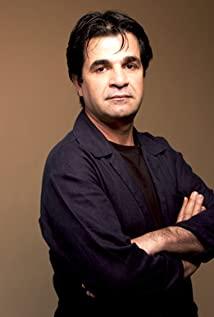Like the saying in Forrest Gump: Life is like chocolate, you never know what the next piece will taste like. Movies and I are a bit like this, because movies are like chocolate to me. The moment I open it, I don’t know what kind of story I’ll encounter, what kind of journey I’m going to enter, and what kind of story I’m going to evoke. impression.
I have a habit of watching movies, that is, I don’t search for the relevant information of the movie in detail before watching it, and I don’t watch too much even if it is the plot introduction. The consequence of this is that every time I click on a movie, I have a big Curious, curious about what the next story will be, and the movie "Taxi" is still the same.
But there must be an opportunity to eat chocolate, and so does watching a movie. I just followed Wang Xiaowu's Douyin account recently, mainly to popularize some knowledge about movies. Before watching this film, I just learned: double shots, over-the-shoulder relationship shots, follow shots, hand-held shaking shots, front and back shots of shots, shots Knowledge points such as passive movement, group dialogue shooting techniques, and open endings, etc., the material of this film was put in the example of the knowledge points, so I opened it today.
This film mainly uses five camera positions: the front view of the dash cam, the left view of the vehicle's co-pilot, the right view of the vehicle's driver's seat, the mobile camera with an iPhone, and the mobile camera with a Canon camera. Only five cameras were used to shoot a movie, so a lot of lens language was used in it.
A long shot of invalid information at the beginning: the dash cam is facing the front of the road, and the passers-by are walking. After waiting for a long time, the protagonist does not appear. At this time, the traffic light turns green, the taxi starts, and the protagonist still does not appear. , after crossing the road, the camera is still forward, and two passengers are heard in the background sound getting into the car. At this time, the voice of the passenger in the passenger seat is heard first, and the camera slowly moves to the position of the passenger in the passenger seat and the passenger in the rear seat, and the two enter the country at the same time. , and it was an over-the-shoulder relationship scene (the two characters have a certain connection), and within a while, the two of them had a dispute over whether the government should sentence thieves to death. During the dispute, they explained their identities, one teacher and the other claimed to be a thief. The robber, no one can convince anyone. The robber got off the bus at the station and asked about the fare. The driver replied that he did not want any money. The robber pointed out his identity as a driver: "You must not be a driver. Qian, I know you are a director, I know your face. At this time, the protagonist finally appeared, the camera moved to the driving position, a kind uncle, wearing a blue hat, dark glasses, wearing a dark blue casual suit, inside Wearing a black T-shirt and wearing a very ordinary dress, he has such a curious appearance. This is the appearance routine of the protagonist of the movie, creating a sense of mystery and attracting the attention of the audience. A large number of group portraits are also used later, and the lens is positive. Shooting techniques such as counter-attack, hand-held shaking photography, and no-trace editing transitions are not listed one by one. In short, watch this film with a little knowledge of lens language, and you can discover a brand-new viewing angle.
As "Walden" said: If I know other people very well, then I will not go on talking about myself. Since I don't know much about Jafar Panasi and Iranian society, my main thoughts are related to the society I live in and the things I see. Jaffa was banned from filming because of Iran's strict film censorship system, so the film can only be filmed in a taxi. All the shots are not aboveboard, and the scene can only be limited to the taxi. From the perspective, the camera can no longer be shot a little far away from the taxi, so the stories of several characters in the film do not have a complete plot. We can only understand the country of Iran through the dialogues of the characters, which leads to watching the movie. It will be more irritating later, because the scope of the camera is too small. Whenever a new character appears to tell his story and wants to know him better, the camera limits us. He only needs to leave the taxi and tell his story. So far, so helpless and sad.
When I see this, I think of China's film review system. We all know that the State Administration of Radio, Film and Television has many requirements that cannot be filmed or released. How many times has a "Youth of You" been withdrawn, and how many violent contents have been deleted, and finally presented The story is also unsatisfactory. I also know that other countries have a film rating system. I used to envy this rating system, because it allows us to see films of various themes. I always hope that one day we can too, but now I don’t think so, because the establishment of a system requires The price paid is too high, and it is good to keep the status quo. At least the country does not restrict the viewing of other types of movies. We can also learn about the outside world and stories through unofficial channels, and we still have the opportunity to choose.
View more about Taxi reviews


